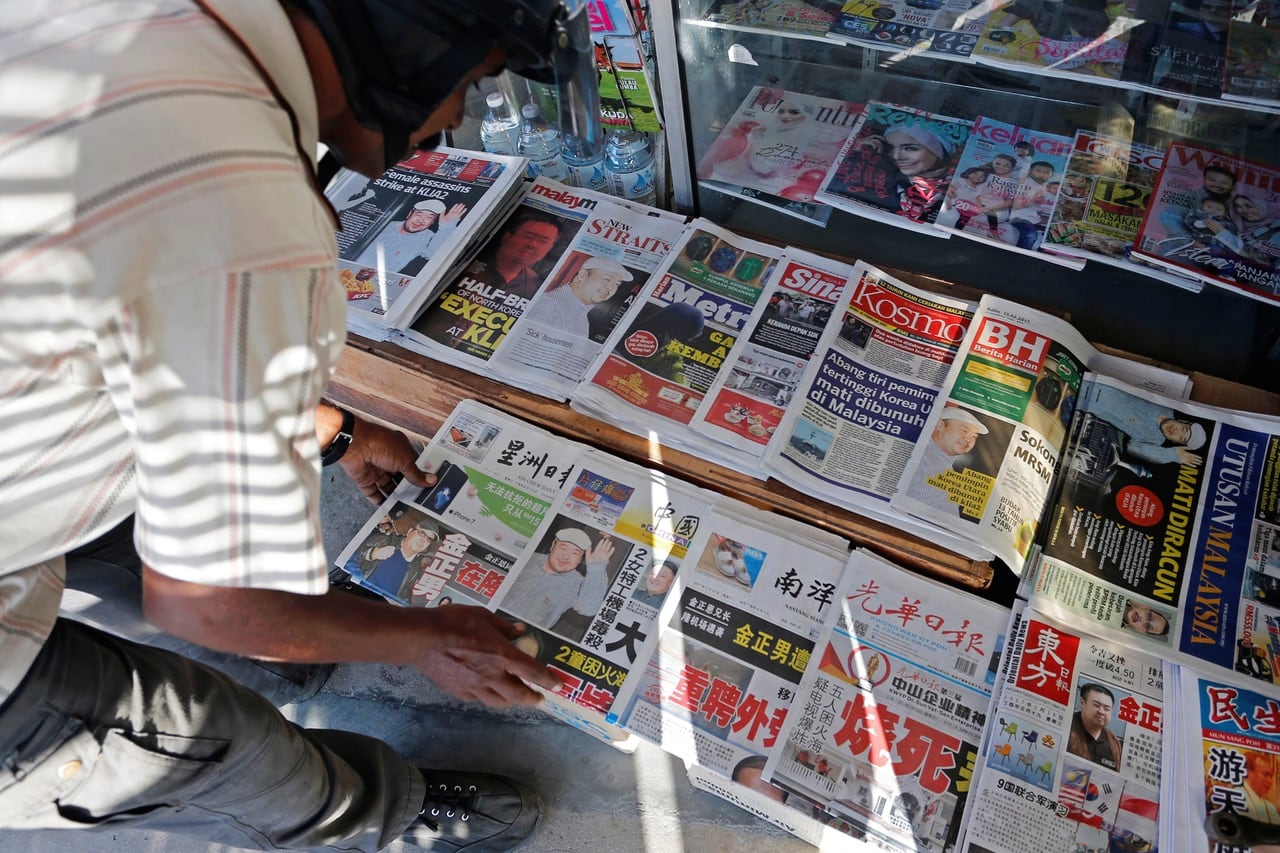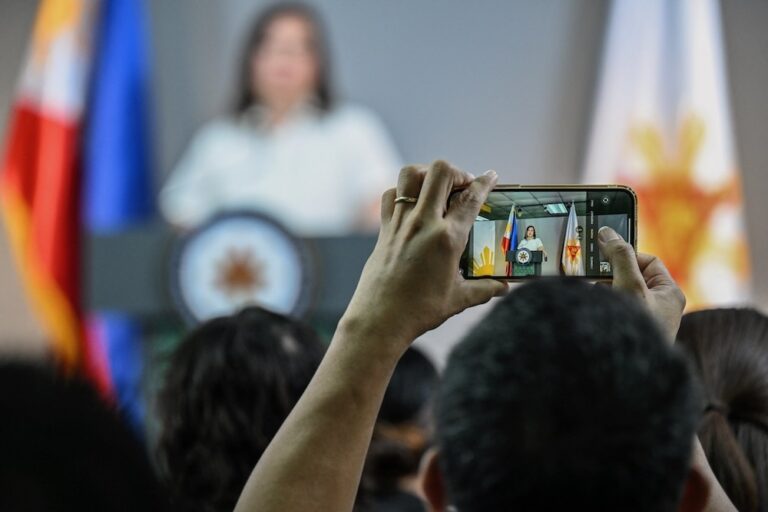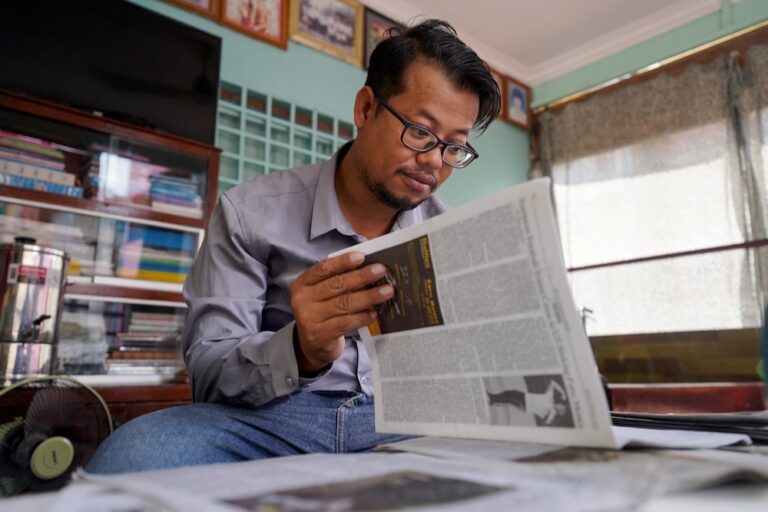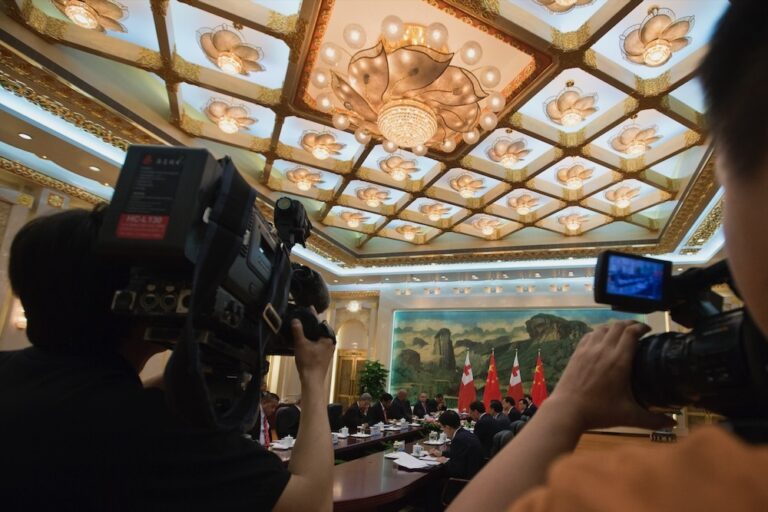On World Press Freedom Day (WPFD) 2017, the Southeast Asian Press Alliance (SEAPA) shares a number of stories that demonstrate the devastating decline of free expression and press freedom in the region.
This statement was originally published on seapa.org on 3 May 2017.
On World Press Freedom Day (WPFD) 2017, the Southeast Asian Press Alliance (SEAPA) shares the following stories that demonstrate the devastating decline of free expression and press freedom in the region.
[Burma] Media in transition and conflict: Challenges for truth and reconciliation
Journalists have been subjected to threats and violence from religious extremists. Those that write about national security, anti-corruption, religion, conflict, land rights, illegal logging and wood smuggling, among other subjects face a certain risk. Most cases against journalists were under the penal code such as the defamation act or trespassing act, and Section 66(d) of the Telecommunications Law.
[Cambodia] Media face tighter controls amid growing crackdown on dissent
Bloggers, journalists, and news outlets have begun to utilise social media in particular as a means of sharing information regarding governance, human rights, and corruption. It should come as no surprise that The Royal Government of Cambodia’s (RGC), which plans to “crush” media outlets that endanger peace and stability, has begun to devise legislative mechanisms to restrict online criticism.
[Indonesia] The hoax problem and other pressing issues
The surge in the number of hoax cases has caused the government to create rules on blocking of websites that contain hoaxes, pornography, terrorism, religious tension, hate speech, and other elements that could potentially disturb the stability and peace of the country. The Communications and Information Ministry of Indonesia has blocked more than 800,000 websites.
[Laos] Critical cyberspace shrinks, mainstream press further muted
Discussions on highly sensitive issues and taboo subjects were limited or missing in the mainstream media. Lao netizens, helped by the country’s internet boom, have managed to access taboo information banned in the state. But there were some incidents that prompted the authorities to call some Facebookers, who disseminated news, warning them to share only official local news – which is a big concern because of the intrusive and expansive nature of the state’s internet surveillance network.
The proposed amendments to the Communications and Multimedia Act 1998 have yet to be tabled in parliament, more than a year since it was first mooted, but changes can already be seen in the operations of certain media outlets. The proposal for news portals and blogs to be registered with the government is also a shadow that looms over daily operations of online media outlets. Having a “big brother” like authority would subject online portals to regulations that had shackled its print and broadcast counterparts.
[Philippines] Signs of continuing press freedom decline under Duterte
There was no progress in the work to decriminalize libel, which is still listed as an offense in the country’s criminal code. The freedom of information (FOI) act, which has failed passage in previous administrations, has been refiled and is already on its second reading in the Congress. There were four journalists killed in the line of duty in the same year, while the number of other attacks and threats was higher than previous years. The election of 2016 changed national leadership as President Benigno Aquino III ended his six year term, turning over the presidency to former mayor of Davao City, Rodrigo Roa Duterte. The change in the presidency also changed the country’s press freedom landscape.
[Thailand] Free expression and media freedom: Back to zero
Several new government mechanisms were either set up or in the process of establishment to tighten state control over the media at this time and in preparation for the future, not only to restrict professional media but also target online content.
[Timor-Leste] Free media, but still threatened
Prime Minister Rui Maria de Araujo’s opted to take Timor Post’s editor in chief Lourenco Martins and his journalist Raimundo Oki to court, claiming that they published fake news stories and that it publicly damaged his image and reputation; even though the right of reply was granted to the Prime Minister. Timor Post even publicly apologized at the Palace of the Government for the mistake. But unfortunately, the Prime Minister kept taking the case to court because of the so-called truth.
[Vietnam] Suppressing rising dissent
2016 later saw continuous harassment of political bloggers, rising violence against peaceful demonstrators, and successive arrests of human rights defenders in the following months.
Background on WPFD
Critical Minds for Critical Times: Media’s role in advancing peaceful, just and inclusive societies
Every year, 3 May is a date which celebrates the fundamental principles of press freedom; to evaluate press freedom around the world, to defend the media from attacks on their independence and to pay tribute to journalists who have lost their lives in the exercise of their profession. (Please visit the United Nations Educational, Scientific and Cultural Organization’s [UNESCO] page for more information.)



